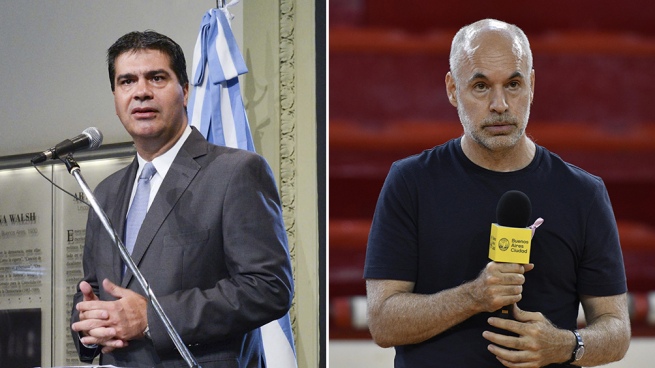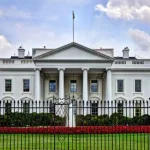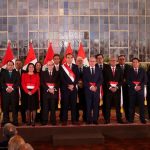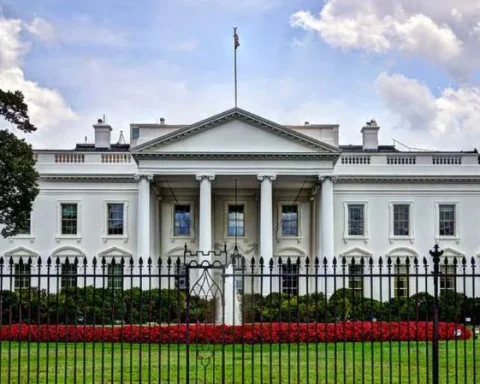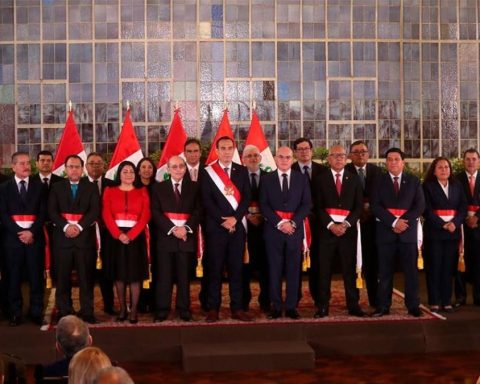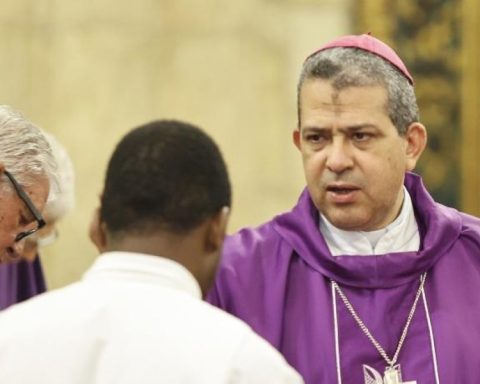The Governor of Chaco Jorge CaptainichI affirm that the governors are going to “defend the interests and resources that correspond to the provinces” and also considered that the allocation of federal resources made by former President Mauricio Macri to the city of Buenos Aires “transgresses what is stipulated by the National Constitution” and “deepens asymmetries even more.”
“The governors are going to defend the resources that correspond to our provinces because we must always look after the interests of our citizens,” the Chaco president told the press upon entering the Casa Rosada on Wednesday.
The president made these statements prior to the start of the meeting between the national government and leaders from more than 20 provinces after the conciliation hearing that, at the request of the Supreme Court of Justice, the Nation and the city of Buenos Aires had to discuss the reassignment of funds for the transfer of the police to the Buenos Aires district.
“The provinces object to the resource allocation methodology used by Macri and we understand that the legal claim is valid. The former president stated at the time that this transfer of funds to the City was to cover the security system. With that criterion, he transgressed what is stipulated in article 75, paragraph 2 of the National Constitution,” said the governor.
Capitanich considered that “not only does the City of Buenos Aires have financing capacity for the security issue, but it also has the largest transport subsidies and a large number of works for drinking water, sewage and a differential energy rate.”
“All these resources that the national State pours into the City of Buenos Aires, it does not invest in the rest of the country. Therefore, severe and profound asymmetries are generated. In other words, it implies that 40 percent of the population or more is concentrated in 0.01 percent of the country’s surface, that is, 203 km2, accounting for the suburbs”, he pointed out.

On the situation of co-participation in Justice, Capitanich argued that “there is a negotiation scheme for a conciliation act and it is estimated that this can generate the conditions to mark the position.”
“We (the province of El Chaco) presented ourselves as a ‘friend of the court’ before the Court, explaining our well-founded reasons as to why additional arbitrary mechanisms cannot be guaranteed. We are in a dispute of 90,000 million pesos per year, ”he added.
Regarding the current Federal Co-participation law, Capitanich recalled that “There is a perfectly regulated norm that the Court has not adequately contemplated its implementation until now”.
With regard to the possibility of a ruling by the Court in favor of the City with a political meaning against the national government, the president of Chaco indicated that his intention was not “to prejudge the conduct of any judge.”
“I do not make considerations about the judges, in particular, or about the court in its composition, but we understand that we must emphasize the defense of the interests of the respective provinces and their resources,” he remarked.
The meeting, requested by the provincial leaders, takes place from 11 in the Eva Perón Room of Casa Rosada and is headed by the Chief of Staff, Juan Manzur, and the Minister of the Interior, Eduardo “Wado” De Pedro.
The national and Buenos Aires governments held a public hearing on March 10 before the Supreme Court of Justice to try to reach an agreement on the dispute over the funds transferred to CABA for the maintenance of the police during the administration of former President Mauricio Macri.
From there, the highest court gave 30 working days, a term that expires on April 26, for there to be a political negotiation between both parties, and if there is no settlement, it will issue a precautionary measure.
